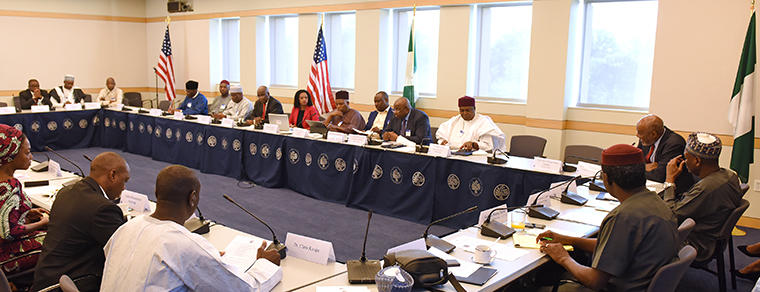Nigeria Beyond Boko Haram
An Online Conversation with Northern Nigerian Governors on Strategies for Peace
Despite Nigeria’s recent advances in pushing back the Boko Haram insurgency in the northeast, the country now faces fresh challenges in the region. They include a growing humanitarian crisis because of destruction and displacement, including the risk of widespread hunger, and the need for progress on reconstruction and reconciling communities. Throughout Nigeria, the flagging economy is further straining businesses, government spending and day-to-day living. On October 20, the U.S. Institute of Peace held a webcast discussion with governors from states across the northern region of Nigeria on what they and their citizens can do to address these and other challenges. Participating governors took questions via Twitter.

In 2014, Boko Haram ranked as the world’s deadliest extremist group, killing thousands of people and outpacing the self-styled Islamic State, or ISIS. The insurgency threatens not only Nigeria but neighboring countries across the Lake Chad Basin. Resolving the crisis requires more than a security response. Nigerian leaders and society must address a range of factors – economic, social, environmental and political – that create conditions for Boko Haram and other violent conflict to take root.
Governors from the north, where approximately half the country’s 180 million people live, attended a three-day symposium in Washington, D.C., to discuss opportunities for constructive and inclusive action to address the challenges in their region. Conversations included Nigerian civil society and U.S. policy leaders.
The webcast focused on Nigeria’s prospects for peace, what Nigerian citizens and leaders can do to manage tensions or violence, the most important issues for the state governors, and how stability in northern Nigeria can contribute to progress and prosperity for the country.



